OBD2 scanners have become an indispensable asset in automotive maintenance and repair, making an invaluable contribution towards diagnosing an array of engine and transmission issues.
When it comes to ignition problems - an integral element for vehicle operation - OBD2 scanners may not always offer clarity regarding their capabilities and limitations. we explore their role with your ignition system, what problems they can identify, as well as tips on how you can utilize these tools effectively.
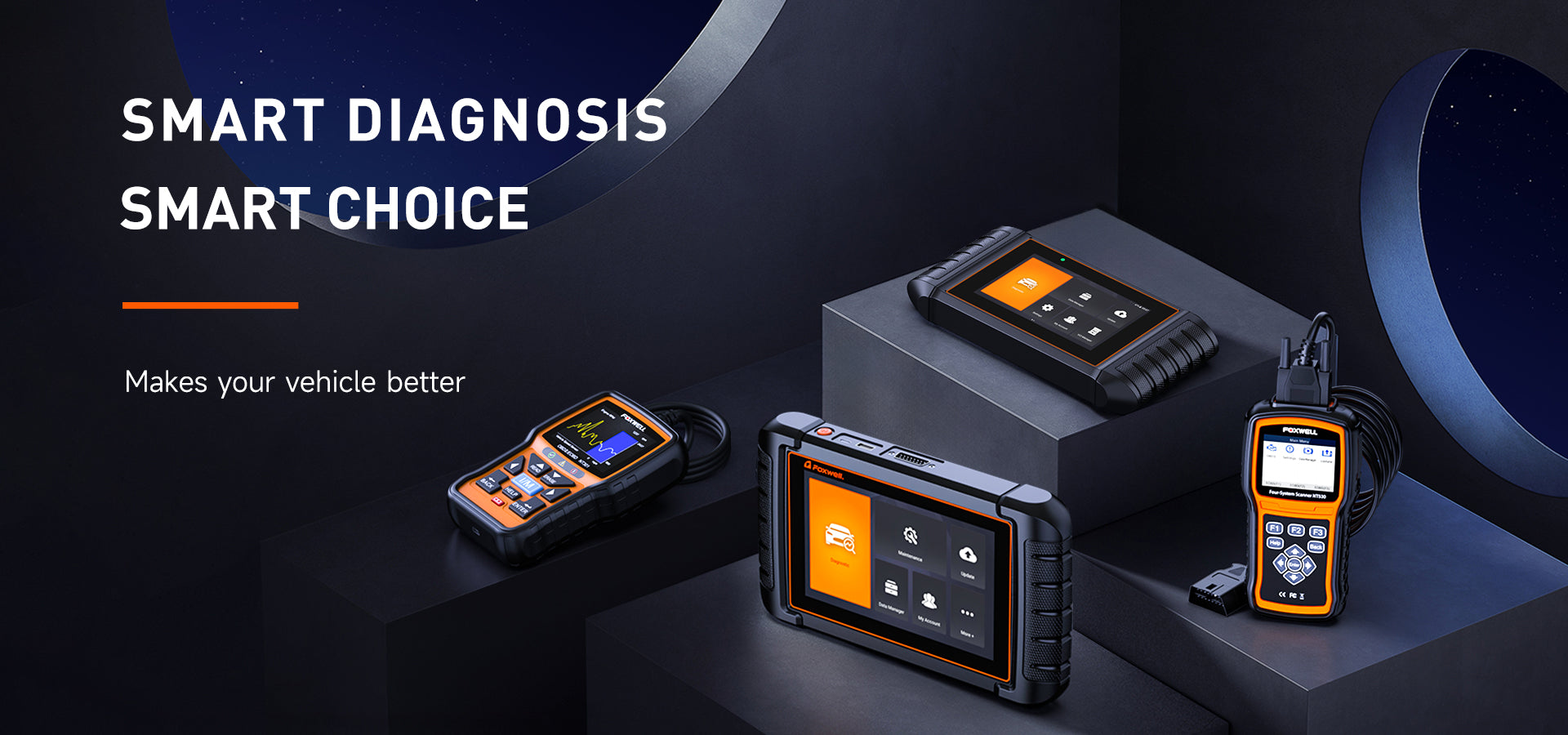
Understanding the Role of an OBD2 Scanner in Vehicle Diagnostics
Fundamentals of OBD2 Technology
The OBD2 system found on most modern vehicles is integral to automotive diagnostics.
As an industry standard designed to monitor vehicle performance and emissions, OBD2 allows cars to self-diagnose any issues within their systems and report any discrepancies to technicians and owners for repairs.
An OBD2 port under the dashboard provides access to its onboard computer, giving access to valuable data such as trouble codes.
This system significantly enhances vehicle safety, efficiency, and environmental performance compared with alternatives.
How OBD2 Scanners Communicate with Your Car
OBD2 scanners communicate with the engine control unit (ECU) through a standard digital communications port, which monitors various systems and components such as the engine, transmission, and emissions systems.
Should issues arise that necessitate attention by mechanics, DTCs generated by ECU are read by OBD2 scanners, which then provide insight into possible sources of the issue more efficiently, allowing mechanics to pinpoint its cause more quickly and reduce time-wasting repairs.
Two primary types of OBD2 scanners
They are code readers and scan tools. Code readers are essential devices used for retrieval and clearing codes.
At the same time, scan tools offer more advanced features such as live data monitoring, freeze frame data capture, advanced diagnostics, and more in-depth diagnostic capabilities.
Car Code readers are ideal for performing simple diagnostics or clearing trouble codes quickly. In contrast, more in-depth diagnostic solutions, such as those provided by Foxwell, may provide more in-depth diagnostic capabilities suitable for more complex issues.
OBD2 Scanners Can Detect Numerous Issues
OBD2 scanners can identify an array of issues—from simple malfunctions like a loose gas cap to more serious misfires, sensor failures, and transmission issues.
Furthermore, these devices monitor various parameters in real-time, such as engine RPM, vehicle speed, and oxygen sensor data, to provide a holistic view of vehicle health. Thus, OBD2 scanners are invaluable tools for routine maintenance and troubleshooting complex issues.
Advantages of OBD2 Scanners
Utilizing an OBD2 scanner has multiple advantages. First, early detection allows early repair costs; second, it enhances vehicle safety and performance by making sure systems are operating as intended.
Finally, it helps owners better understand their cars so they can make informed decisions regarding repairs and maintenance decisions as well as environmental protection by meeting emissions standards and operating efficiently.
Can an OBD2 Scanner Diagnose Ignition-Related Issues?
Modern vehicles feature various ignition systems, from conventional distributor-based and distributor-less ignition systems (DIS) to coil-on-plug (COP).
Conventional distributor-based systems use a distributor to control spark timing, while electronic control modules and sensors provide this function in these two options.
Each type has distinct components and potential failure points that an OBD2 scanner can help identify.
OBD2 Scanners Can Recognize Ignition Problems
OBD2 scanners can effectively identify several ignition-related issues, including misfires—where the air-fuel mixture fails to ignite properly—through misfire codes such as the P0300 series codes, which indicate random or specific cylinder misfires.
They can also identify problems with ignition coils, spark plugs, and other components via codes such as P035X (ignition coil issues) or P030X (specific cylinder misfires).
OBD2 Scanner Limitations in Diagnosing Ignition Problems
While OBD2 scanners can be helpful tools for diagnosing ignition problems, they have limitations.
OBD2 scanners primarily detect electrical and performance-related problems but may miss physical faults like worn-out distributor caps or physically damaged ignition coils.
Furthermore, some codes may make pinpointing their root causes challenging; further testing or specialist tools may be needed to identify them effectively.
OBD2 Scanners Are Effective Tools for Ignition Diagnostics
While OBD2 scanners have limitations, they provide significant advantages when diagnosing ignition problems.
First, they serve as a starting point for troubleshooting. mechanics and vehicle owners can quickly identify potential issues with these scanners.
They provide real-time and freeze frame data, helping diagnose intermittent or complex ignition issues more accurately than ever.
Combined with visual inspections or other diagnostic tools, these scanners become invaluable resources for maintaining and repairing ignition systems.
Advanced OBD2 Scanners for Ignition Diagnostics
Foxwell OBD2 scanners provide enhanced diagnostic capabilities for ignition systems. Their sophisticated scanners features like live data streaming, bidirectional control, and enhanced diagnostics that enable more precise troubleshooting of ignition issues.
The NT301 offers real-time data for diagnosing ignition issues, while the NT630 provides comprehensive vehicle health management capabilities, offering additional diagnostics for ABS/airbag systems as well.
Practical Applications of OBD2 Scanners in Ignition Diagnosis.
OBD2 scanners have become indispensable to both professional and DIY automotive diagnostics for ignition issues.
Mechanics use these tools during routine maintenance and when diagnosing symptoms like stalling or rough idling in vehicles.
vehicle owners can use OBD2 scanners as monitoring devices that help detect problems before they become serious, thus helping ensure vehicles operate more smoothly and efficiently.
In both instances, these valuable insights allow these devices to provide valuable insights that ensure their vehicle runs efficiently while providing valuable insights that ensure vehicles operate smoothly and efficiently ensuring vehicles run efficiently and smoothly while running smoothly and efficiently.
Exploring the Limitations of OBD2 Scanners for Ignition Diagnostics
OBD2 scanners excel at identifying electronic and performance-related issues but sometimes fail to diagnose mechanical ignition component faults properly.
Topics such as worn-out distributor caps, damaged ignition coils, or worn spark plugs might not always trigger specific error codes that an OBD2 scanner can read. for instance, a misfire code might only indicate damage in general rather than pinpoint its exact source - leaving mechanics and car owners frustrated and searching in vain; thus costing time and resources.
Complementary Diagnostic Tools
Given these limitations, additional diagnostic tools such as those offered by Foxwell can provide more in-depth knowledge of your ignition system and enable more accurate diagnosis.
Foxwell NT301 OBD2 Scanner, known for its accurate diagnostic capabilities, can read and clear DTCs, reset monitors, and provide live sensor data. However, combining OBD2 scanning with other diagnostic methods, such as oscilloscope testing or visual inspections, is often necessary to gain an accurate assessment of an ignition system's health.
The Foxwell NT630 provides even more functionality with features like ABS and airbag diagnostics, proving that its capabilities go far beyond simple ignition diagnoses.
Electrical Versus Mechanical Issues in Ignition Diagnostics
OBD2 scanners excel at diagnosing electrical issues within an ignition system, but may be less successful at diagnosing mechanical issues that sometimes mimic electrical symptoms - for instance, a worn camshaft position sensor might give similar signs as an ignition coil failure and cause confusion.
Using only OBD2 data in such cases could result in incorrect repairs or unnecessary part replacements. Foxwell's advanced diagnostic tools provide more detailed data and insight. however they should still be used alongside other diagnostic techniques when diagnosing any possible mechanical issues within an ignition system.
Real-World Case Study: OBD2 Limitations in Ignition Diagnosis
Imagine this: Your vehicle exhibits intermittent stalling issues, but no OBD2 codes are produced as evidence. An OBD2 scanner might fail to pick up mechanical problems such as faulty ignition switches or wiring corrosion that cause such symptoms.
for instance, in one real-world example, a Foxwell NT301 was used to check for codes but yielded nothing; after extensive troubleshooting revealed a loose ignition switch connector as the culprit - further emphasizing the necessity of visual inspections and mechanical diagnostics alongside OBD2 scanning.
Foxwell Diagnostic Tools Can Overcome OBD2 Limits
Foxwell offers a range of diagnostic tools designed to expand OBD2 capabilities, such as the Foxwell GT60, which combines powerful diagnostic software with an easy user interface for more straightforward navigation and interpretation of complex vehicle systems.
By combining such tools with traditional diagnostic methods, mechanics and car owners can effectively address any limitations OBD2 scanners may impose when conducting ignition diagnostics.
Foxwell Scanners Provide Accurate Diagnostic Results
Foxwell's scanners deliver HD data streams and diagnostic features that can assist in pinpointing subtle or complex ignition problems, but understanding their scope and limitations is critical to using them effectively.
For instance, Foxwell's NT650 offers multi-system diagnosis, which covers SRS, ABS, and ignition issues; such information provides valuable context when diagnosing complex matters.
Troubleshooting Tips for Challenging Ignition Problems
When confronted with challenging ignition problems, using the detailed data of Foxwell scanners and practical troubleshooting techniques is critical. Beginning with a comprehensive scan using something like the Foxwell NT624, which provides extensive vehicle coverage and system diagnoses, then target specific tests like checking the resistance of ignition coils or inspecting spark plugs; never underestimate the value of visual inspection to detect issues like damaged wiring or loose connectors that scanners might miss; never underestimate its worth!
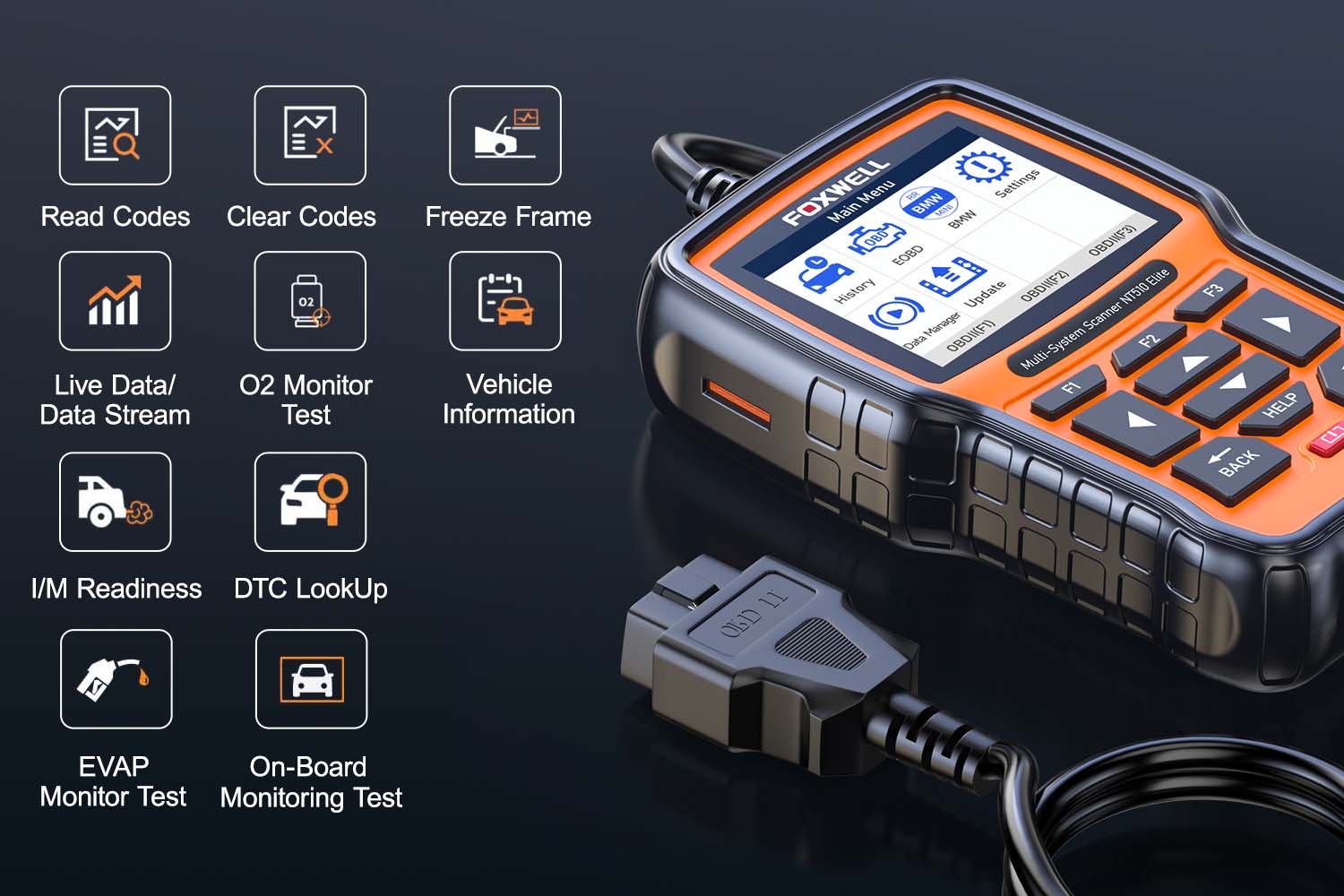
conclusion
OBD2 scanners have transformed automotive diagnostics, particularly regarding ignition-related problems.
These powerful tools give vehicle owners and mechanics vital insights into engine performance, emission control systems, and overall vehicle health.
By understanding OBD2 scanners' roles and capabilities in diagnosing ignition problems, you can better appreciate their value in maintaining and repairing vehicles.
OBD2 scanners should be seen for what they are: excellent tools for detecting electronic and performance-related ignition issues, but their specificity might not cover mechanical faults or complex problems.
To overcome these limitations, advanced OBD2 scanners from Foxwell provide enhanced diagnostics and real-time data, augmenting what the OBD system already offers.
FAQs
What types of ignition problems can an OBD2 scanner diagnose?
An OBD2 scanner can quickly and effectively assess ignition-related issues, including engine misfires, ignition coil malfunctions, and spark plug issues.
Can an OBD2 scanner identify mechanical ignition problems?
OBD2 scanners mainly detect electronic and performance-related issues; however, they may not be effective for mechanical difficulties like worn-out distributor caps or transmission issues.
How can I improve the diagnostic accuracy of an OBD2 scanner?
To increase diagnostic accuracy, combine OBD2 scanning with other tools such as oscilloscope testing or visual inspections, plus utilize advanced OBD2 scanners like those from Foxwell.


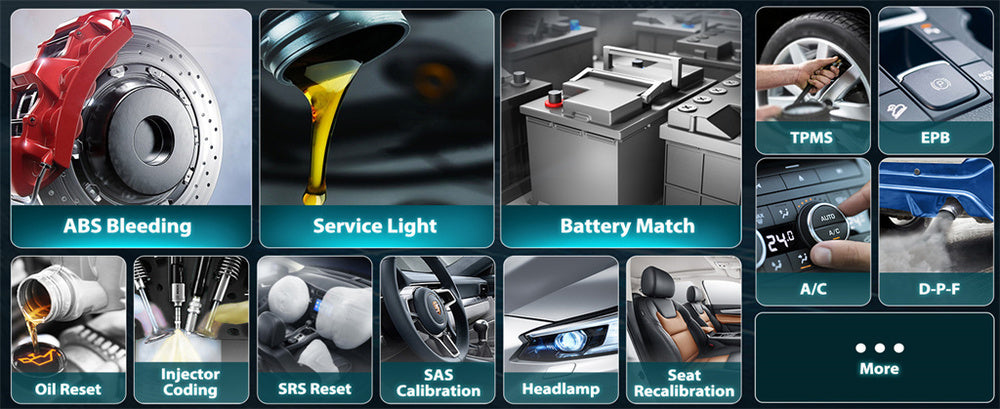
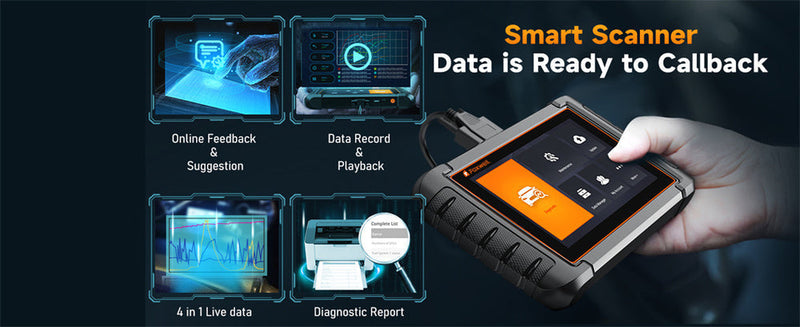
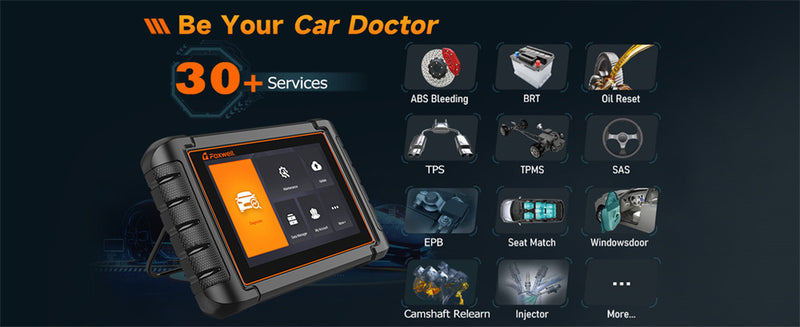
Leave a comment
This site is protected by hCaptcha and the hCaptcha Privacy Policy and Terms of Service apply.